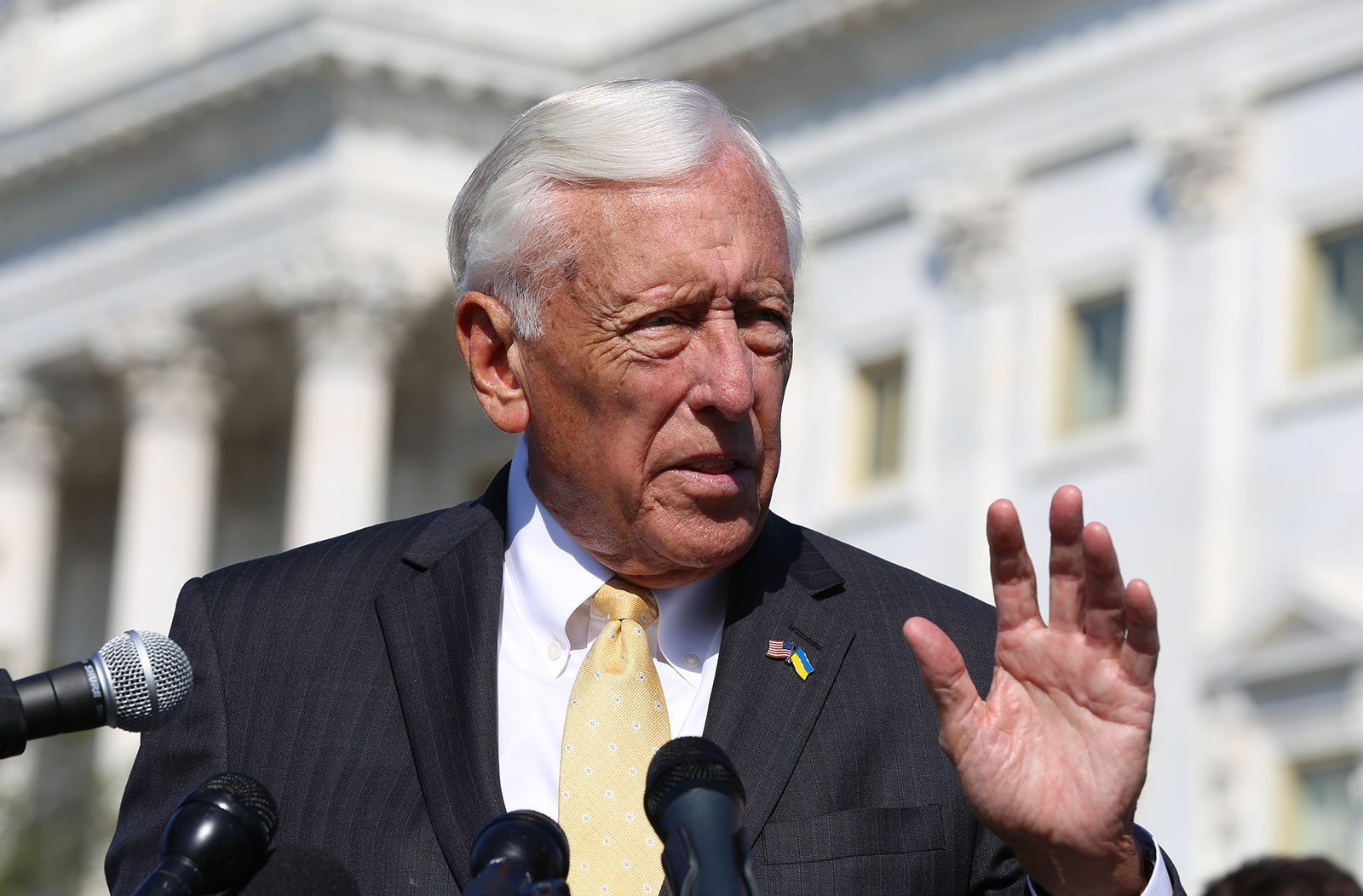Table Of Content

Clark, 59, began her political career as a member of a local public school committee, before rising through the ranks in the Massachusetts state legislature. She was elected to Congress in 2013, where she has been a vocal advocate for women’s reproductive rights and other policies affecting women and children. Emmer, 61, a former attorney and the father of seven, began his career in the Minnesota legislature.
Legislative functions

As majority leader, which is behind only the speaker of the House, Scalise will be in charge of determining work schedules and setting the agendas. Capitol, said a congressperson speaking on condition of anonymity about the secret balloting. At a press conference following the vote, Jeffries noted how his confirmation landed on the birthday of Shirley Chisholm, the first Black woman elected to Congress. As someone who represented some of the same neighborhoods that she did, Jeffries framed the significance of his election by reflecting on her legacy and what his party could learn from it.
House Republican Leadership News Conference March 6, 2024 - C-SPAN
House Republican Leadership News Conference March 6, 2024.
Posted: Wed, 06 Mar 2024 08:00:00 GMT [source]
Party functions
Although Former House Speaker Kevin McCarthy was not in the running, he received more votes than Donalds in the final round. Majority Leader Steve Scalise threw his support behind Johnson late Tuesday, calling him a "dear friend" in a statement. Trump seemed to acknowledge his role in killing Emmer's quest for the gavel, as he shared on his social media platform an article from Politico about how the former president "torpedoed" the bid. Emmer began to lose support from conservative lawmakers shortly after Trump's missive, and he bowed out of the contest shortly after.
Scalise: Step by Step, Biden Has Opened the Border
While past efforts to kick Planned Parenthood off Missouri’s Medicaid program have been struck down by courts, this year, GOP lawmakers are taking another approach, hoping to avoid a legal showdown. And some members of the Freedom Caucus are doubling down, by threatening to abolish a tax that could cost the state an additional $2.9 billion in federal funding if they don’t get their way. Republicans held a candidate forum Tuesday night with five members vying to be the next speaker-designee after Emmer withdrew.
President Joe Biden and former President Donald Trump have essentially clinched their party’s 2024 nominations for the White House. But Pennsylvania voters on Tuesday will cast their ballots in a slew of contentious and potentially decisive congressional and state races that are still sure to make waves as the campaign chugs toward November. On the Transportation, Treasury and General Government Appropriations Subcommittee, Congressman Hoyer became widely recognized as a national leader on issues affecting Federal employees and retirees. In addition to guiding FEPCA to passage, he fights year in and year out for fair pay and benefits for Federal employees, and he has secured funding for telecommuting centers that save money and reduce traffic congestion.
House Republican Leadership News Conference February 14, 2024 - C-SPAN
House Republican Leadership News Conference February 14, 2024.
Posted: Wed, 14 Feb 2024 08:00:00 GMT [source]
The overall objectives are to develop a coordinated communications strategy, to share ideas and information, and to present a united front on issues. Minority leaders also make floor speeches and close debate on major issues before the House; they deliver addresses in diverse forums across the country, and they write books or articles that highlight minority party goals and achievements. They must also be prepared "to debate on the floor, ad lib, no notes, on a moment's notice," remarked Minority Leader Michel.[43] In brief, minority leaders are key strategists in developing and promoting the party's agenda and in outlining ways to neutralize the opposition's arguments and proposals. Starting with Republican Nicholas Longworth in 1925 and continuing until 1995, all majority leaders have directly ascended to the Speakership after the incumbent surrenders the position. The Constitution provides that the House may choose its own speaker.[50] Although not explicitly required by the Constitution, every speaker has been a member of the House. The Constitution does not specify the duties and powers of the speaker, which are instead regulated by the rules and customs of the House.
Republicans who opposed Jordan for speaker are now rallying behind Johnson
"I am steadfast in my commitment to get winner-take-all over the finish line, thereby honoring our constitutional founding, unifying our state and ending the three-decade-old mistake of allocating Nebraska's electoral votes differently than all but one other state," the governor said earlier this month. The election on Tuesday could reveal just how salient the issue of the war is for Democratic voters — particularly in swing areas of the country. It may also forecast how other progressives facing similar challenges from moderate Democrats could fair in their races. He is one of a handful of Republican representatives serving in districts that Biden won in 2020.
Personnel, mail and office expenses
Lorna Slater, co-leader of the Scottish Greens, has said her party will not be changing its mind about supporting the upcoming motion of no confidence in First Minister Humza Yousaf. The Democratic victories in the state House races could end the legislative gridlock that has defined the tied chamber for the past several months. The pair of seats have sat empty since late November last year after former state Reps. Kevin Coleman, of Westland, and Lori Stone, of Warren, were sworn in as mayors of their respective hometowns. While Nebraska overwhelmingly backed Trump in the overall statewide vote in both 2016 and 2020 — part of a longstanding pattern for Republican presidential nominees — President Joe Biden was the victor in the Omaha-based 2nd Congressional District in 2020 and thus secured its one electoral vote. Perry was a former chair of the Freedom Caucus, one of the most conservative factions of the Republican Party, with members including Florida Rep. Matt Gaetz and Georgia Rep. Marjorie Taylor Greene.
Republican Leadership
The speaker, committee chairs, and some other officials are generally from the majority party; they have counterparts (for instance, the "ranking members" of committees) in the minority party. Now McCarthy is in the fight of his political life as he again seeks the speakership. He won the party’s internal leadership elections, dispatching a challenge from the far right. But the real test will come on the House floor, where he will need the support of nearly every member of his caucus to become speaker.
House Minority Whip Steve Scalise, R-La., speaks with journalists as he walks to a House Republican leadership meeting, Tuesday, Nov. 15, 2022, on Capitol Hill in Washington. "I have studied history long enough to know that evolutions are much better than revolutions," Clyburn said. "And I think that anybody watching their caucus, our caucus over the years, could see the evolving leadership." On Oct. 3, McCarthy was voted out as speaker, becoming the first speaker in U.S. history to be removed from the role during a legislative session. The U.S. House of Representatives does officially use the term "Minority Leader" and so does the media. The House uses the terms "Republican Leader" or "Democratic Leader" depending on which party holds a minority of seats.
In 2004, Scalise announced that he would run for the 1st congressional district, but deferred to the preference of party leaders and supported Bobby Jindal, who won the position vacated by the successful U.S. senatorial candidate, David Vitter. The chairs of House committees, particularly influential standing committees such as Appropriations, Ways and Means, and Rules, are powerful but not officially part of the House leadership hierarchy. Until the post of majority leader was created, the chair of Ways and Means was the de facto majority leader. While their role has fluctuated over the years, today they have many of the same privileges as voting members, have a voice in committees, and can introduce bills on the floor, but cannot vote on the ultimate passage of bills. Presently, the District of Columbia and the five inhabited U.S. territories each elect a delegate.
The speaker's powers included chairmanship of the influential Rules Committee and the ability to appoint members of other House committees. However, these powers were curtailed in the "Revolution of 1910" because of the efforts of Democrats and dissatisfied Republicans who opposed Cannon's heavy-handed tactics. Another scholar contends that the minority leader position emerged even before 1883. "It is hard to believe that House partisans would place a man in the speakership when in the majority, and nominate him for this office when in the minority, and not look to him for legislative guidance."[28] This was not the case, according to some observers, with respect to ex-Speaker Keifer.
Initially, the Majority Leader was an appointed position, chosen by the Speaker. In 1899, Speaker David B. Henderson, a nine-term Republican from Iowa, selected Sereno Payne of New York to shoulder the responsibilities of serving as both Ways and Means chairman and Republican floor leader. When Democrats captured the majority following the 1910 elections, the party caucus maintained that dual arrangement, so that from 1899 to 1919, regardless of the party in power, whoever served as Ways and Means chairman also served as Majority Leader. In 1919, following the example set by Republican Leader Frank Mondell of Wyoming in the 66th Congress (1919–1921), Majority Leaders more or less stopped serving on committees. Gingrich attempted to pass a major legislative program, the Contract with America and made major reforms of the House, notably reducing the tenure of committee chairs to three two-year terms. Many elements of the Contract did not pass Congress, were vetoed by President Bill Clinton, or were substantially altered in negotiations with Clinton.
He laid out a plan for passing a series of government spending bills earlier in the week that attracted support from some of McCarthy's detractors, and his broad support among the Republican conference was a signal of lawmakers' desire to move past the divisive speaker fight and reopen the House. That outcome angered some conservatives, including members of the far-right House Freedom Caucus. Rep. Kevin McCarthy, R-Calif., in the internal party vote Tuesday that they could stop him from winning the speaker of the House race. McCarthy won his selection for speakership, but 31 conservatives voted against him, according to the congressperson. Louisiana Republican Congressman Mike Johnson, of Benton, also strolled to easy reelection as vice chair of the Republican Conference, winning by acclamation.
The term of a member chosen in a special election usually begins the next day, or as soon as the results are certified. One example of a provision repeatedly supported by the House but blocked by the Senate was the Wilmot Proviso, which sought to ban slavery in the land gained during the Mexican–American War. Conflict over slavery and other issues persisted until the Civil War (1861–1865), which began soon after several southern states attempted to secede from the Union. All southern senators except Andrew Johnson resigned their seats at the beginning of the war, and therefore the Senate did not hold the balance of power between North and South during the war.

No comments:
Post a Comment